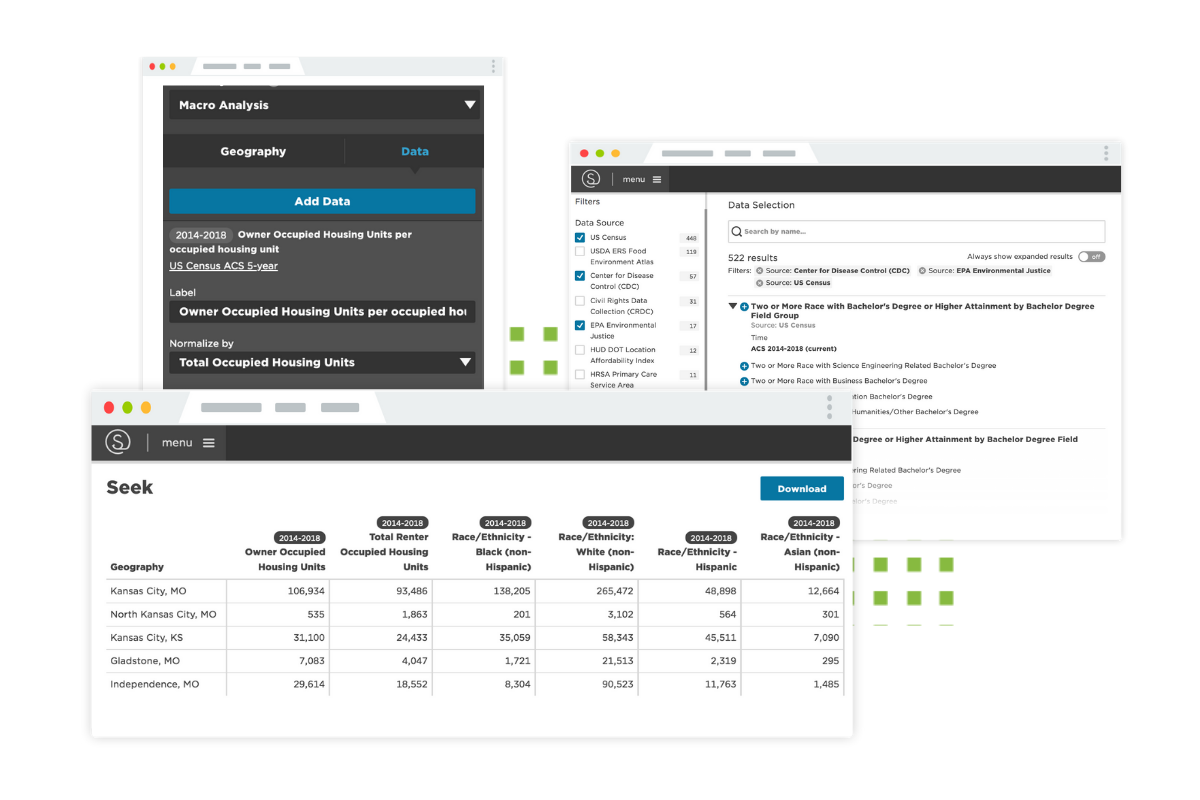The Data Capacity Crisis
We Don't Have a Data Problem — We Have a Capacity Problem
Everyone's talking about data like it's gold. But if you've ever tried to actually use it, you know the truth: data is more like crude oil (or bio fuel) — valuable, but only if you have the time and tools to refine it.
Here's the uncomfortable reality:
The more data we have, the harder it's becoming to do anything with it.
That's the Data Capacity Crisis—and it's quietly strangling community progress.
The Myth of the Data-Driven Organization
As an industry, we've spent a decade convincing civic and nonprofit leaders they need to be “data-driven.” And they listened.
Now every department has access to more metrics, dashboards, and spreadsheets than they can count — but fewer people and fewer hours to actually use them.
We’ve built an ecosystem where “data-rich” often means time-poor.
Every new system promises efficiency, yet most teams are drowning in requests. Leaders are asking for timely insights while analysts are still reconciling last year’s numbers.
The result? Organizations are spending more money collecting data than they are using it. We’ve confused “more” with “better” — and it’s burning people out.
The Time Suck That No One Talks About
If you’ve ever built a report from scratch, you know the pain.
You start with a simple ask — “Can you pull housing affordability data for our annual report?” — and suddenly you’re in a 60-hour scavenger hunt through mismatched geographies and outdated spreadsheets.
It’s not glamorous, and it’s not rare.
A GovTech survey found that public-sector analysts spend nearly half their week just collecting and cleaning data before they ever get to analyze or communicate it.
That’s not a workflow problem. That’s a capacity crisis.
We’ve reached the point where some of the most mission-driven people in government and philanthropy spend the majority of their time formatting CSVs instead of solving problems.
The Real Cost of Inefficiency
This isn’t just about speed or tech — it’s about impact.
This crisis doesn’t just impact data teams — it impacts communities. When analysts are bogged down by formatting or spreadsheet management, important insights are delayed or lost entirely.
And for smaller organizations without full-time analysts or data scientists, the barrier is even higher. Staff are juggling grant reports, communications, and program work, all while trying to pull meaning from messy datasets. Or, even worse, they end up abandoning the data altogether, going back to operating on hunches.
They don’t lack passion. They lack capacity.
The Human Side of the Data Capacity Crisis
Behind every spreadsheet is a person trying to make a difference.
When I talk to community leaders, they rarely complain about “too much data.” What they describe instead is fatigue — the exhaustion that comes from knowing the answers are buried in the numbers, but never having enough time or help to interpret them.
This isn’t just a technical problem. It’s an equity problem.
When under-resourced teams can’t turn data into insight, they lose the ability to tell their story, secure funding, or make their case for change. The same inequities we see in funding and opportunity often mirror inequities in data capacity.
It's Time to Rethink the Goal
If the past decade was about collecting data, the next decade has to be about using it well.
That means shifting from dashboards to decisions.
From manual work to meaningful work.
From “data-driven” to capacity-driven.
We need systems that amplify human capability — automating what can be automated and guiding what should be thoughtful. We need data infrastructure that’s treated like civic infrastructure — not a luxury, but a necessity for every community.
Because the truth is simple: data doesn’t change the world — people do.
And when those people finally have the time, tools, and clarity to use data well, they can do extraordinary things.
Join the Data Capacity Crisis Conversation
Every organization that works with data — from a small nonprofit to a state agency — is feeling the same squeeze.
We’re naming this problem because it deserves national attention. Over the next few months, we’ll be publishing stories, interviews, and practical frameworks to help communities diagnose and solve their own data capacity challenges.
If you’ve ever felt the weight of this crisis, you’re not alone. Let’s talk about it — and start building capacity where it matters most.
Share this
You May Also Like
These Related Stories

We Believe in Your Data—Here's Why

Sidekick goes to Washington


No Comments Yet
Let us know what you think